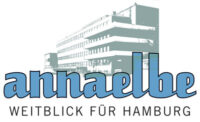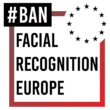Workplace, public space: workers organising in the age of facial recognition
By Reclaim Your Face campaign coordinator European Digital Rights (EDRi) and campaign partner UNI Europa.
This article was originally published in Social Europe.
A spectre is haunting Europe—the spectre of workers’ surveillance. Under the cover of ‘emergency’ legislation against ‘terrorism’ or to contain the Covid-19 pandemic, surveillance of working people is continually being expanded and normalised, in the workplace and on our streets. This takes various forms, with various degrees of invasiveness. It can be Amazon spying on its workers in private Facebook groups or using Covid-19 health-tracking technology to keep tabs on at least 340,000 workers. And it can be facial recognition of employees working remotely, monitored by smaller employers.
Workers’ surveillance can also take the shape more broadly of facial-recognition systems all across Europe’s publicly accessible spaces. This can—among many other harms—suppress workers’ organising. Imposing an omnipresent sense of being watched, surveillance has a clear chilling effect on workers’ readiness to exercise their right to freedom of assembly.
Short-term appeal
Both corporations and governments may see short-term appeal in this wave of expansion of surveillance. While flashy gadgets help paint a picture of a techno-utopia, a key driver is the quest for control.
The dominant positions consolidated by data corporations such as Amazon are only matched by their growing unaccountability. We cannot accept their logic of treating people as a threat—let alone see that adopted by governments. That would accelerate the erosion of trust we are seeing in our societies.
The deployment of facial recognition (or other biometric surveillance technologies) by governments or companies is an immanent threat to workplace democracy. Amid protest outside the headquarters of a company, CCTV cameras could be repurposed for union-busting. Secret algorithms, lacking a scientific basis, could be applied to mark and identify ‘troublemakers’. Faced with marching in the streets, police could use footage and software quickly to identify and target leaders—as well as people supporting or even reporting on the demonstration.
Hard-won rights and freedoms are not negotiable. Ramping up surveillance of individuals is not the way to address collective grievances. Clear boundaries must be set and the collective say of relevant groups of the population over decisions affecting them must be strengthened.
Mass surveillance, at work and beyond, suffocates legitimate social discourse without assuaging the need for it. The history of industrial relations shows time and again that brushing issues under the carpet inevitably results in them re-emerging down the line—often with much more serious consequences.
‘Security-industrial complex’
The documented partnership between private and public surveillance actors in the European Union has been described by the longstanding civil-liberties organisation Statewatch as the ‘security-industrial complex’. Together with the threats to workers’ organising, this phenomenon shows why the EU’s new artificial-intelligence regulation must go beyond what the European Commission has proposed—and ban biometric mass surveillance, by both private and public actors.
Furthermore, the use of AI in the workplace—in recruitment, appraisals and so on—as with all workplace-related rules must be subject to collective-bargaining agreements. The commission’s draft would only require self-evaluation by the companies selling these technologies, leaving the fox to guard the henhouse.
Workers’ rights will be won, as with any other human rights, by collective struggles: collective bargaining or striking at the workplace and protesting on the streets will remain the main tools. But in an increasingly digitalised society, where emails, conversations, faces and bodies can be put under constant surveillance, many will fear for their job security and may choose to stay put rather than become visible.
This is why banning biometric mass surveillance in public spaces and strongly legislating to control harmful AI technologies in the workplace are key to advancing workers’ rights.


















































































